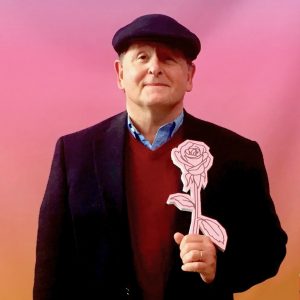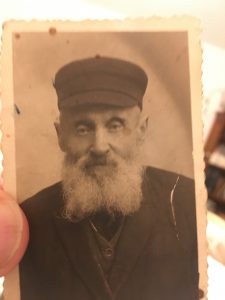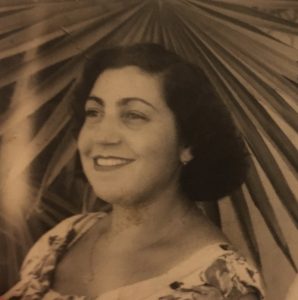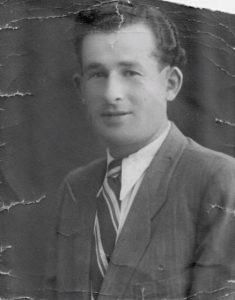Happy New Year. For your amusement (and too long like all awards ceremonies), the transcript from last night’s 2018 Stueys.
Host: The beautiful, charming, genius love child of Liberace and Charo, Liberacha
Liberacha: Here we are at the fabulous Palo Alto Crown Palace ballroom, a hotel built for and once owned by the enchanting Dinah Shore. You can feel her elegance in the air.
Ghost of Ms. Shore: I never liked this place. My husband didn’t consult me and the hotel ended up just like him, tasteless and tacky.
Liberacha: You can’t kill my buzz, Ms. Shore. Just because you didn’t ever win an Oscar doesn’t mean you can be bitter and try to scare us.
Ghost of Ms. Shore: I won two Emmys and one Golden Globe. That’s better than you’ll ever do.
Liberacha: Point well taken. Now please leave.
Ghost of Ms. Shore: You said the magic word. Please. (she vanishes)
Liberacha: Now where were we? Ah, yes! The Stuey Awards, the acme of film accolades. We’re already behind schedule. Let’s hurry. Our first award, for Best Actor in a Supporting Role, goes to Jonah Hill for his stellar performance in Don’t Worry, He Won’t Get Far on Foot.
Jonah Hill: I want to thank my mom and dad for this Stuey. I’ve always been the bridesmaid, never the bride during awards season. Finally! I also want to thank Stuey, who I haven’t seen since we shared the screen in Moneyball. Next time you’re in LA, call me. We’ll go bowling.
Liberacha: Now it’s time for the Best Supporting Actress Stuey. Jane Curtin in Can You Ever Forgive Me?. You were stunning, Jane. You fully inhabited your role as a literary agent. Plus you were so funny!
Jane Curtin: It’s heartwarming to see the Stueys do what so many lesser awards avoid: award comic performances. That’s why the Stueys are valued more than the Oscars for people in the know. Thank you! How’s your mom, by the way?
Liberacha: Still shaking it. I can’t keep up with her. I’m so jealous. And speaking of shaking it, the Best Original Score goes to Nicholas Britell for If Beale Street Could Talk.
Nicholas Britell: Thank you for this wonderful award. I’ll cherish it until I win an Oscar and then will send it back postage due.
Liberacha: How ungrateful! My mother and father told me never to get involved with composers. Now I know why! Here’s to hoping for civility and class from now on. Our award for Best Documentary goes to Won’t You Be My Neighbor?. Accepting the award will be the director, Morgan Neville. That film was inspirational!
Morgan Neville: Thank you, Liberacha, and thank you, Stuey, for this award. I’ve won an Oscar before. It was a meh. But a Stuey. I’ve dreamed that one day, maybe, if I was good and true to my art, it would happen to me. And now it has. (breaks down in tears)
Liberacha: That’s so sweet (hands Morgan a tissue). What’s up with all these question mark movie titles this year, anyhoo?
Morgan Neville: It’s an era filled with uncertainty given you-know-who in the White House.
Liberacha: No joke. And speaking of jokes, it’s time for the Best Comedy award. There’s no uncertainty about it. Can You Ever Forgive Me?. Accepting the award is the executive producer and outrageously talented actor, Bob Balaban.
Bob Balaban: Thank you! I hope that this prestigious award leads to a box office surge, because so far the money coming in has been bupkes. Two Stueys so far. Wow. Maybe we’ll run the table.
Liberacha: Don’t get your hopes up. Best Adapted Screenplay goes to The Sisters Brothers. Accepting the award is Jacques Audiard, who not only co-wrote the screenplay, but did a marvelous job directing this witty oater.
Jacques Audiard: Merci! I’m honored, especially since English is my fourth or fifth best language. Will I win Best Director, too? If so, I’ll just stay on the stage and wait.
Liberacha: Leave at once! The Best Director goes to Peter Jackson for They Shall Not Grow Old. We couldn’t afford his airfare all the way from New Zealand so we’ve hooked up Peter via FaceTime. Peter, what you did with that archival footage was stupendous!
Peter Jackson: Thank you, Liberacha. If your father was still with us, I would have, no doubt, had him play piano for our score.
Liberacha: He’s up there in heaven smiling. I owe my existence to a drunk night in Vegas and a turkey baster. Thank you, daddy! Gracias, mommy, too. And speaking of Spanish speakers, Best Foreign Film goes to Roma. Accepting the award is the visual genius himself, Alfonso Cuaron.
Alfonso Cuaron: I’ve never even been nominated for a Stuey before. This is beyond my wildest dreams.
Liberacha: Dream big. Our Best Original Screenplay Stuey goes to The Cakemaker. Accepting the award is the writer and director, Ofir Raul Graizer.
Ofir Raul Graizer: Toda raba. I thought these scripts needed to be in English.
Liberacha: Yours was trilingual. You got special points for that. Plus we thought it was Hitchcockian in a good way. Lihitriot. Our Best Actor Stuey goes to the omni-talented Daveed Diggs for Blindspotting.
Daveed Diggs: It’s nice to be back home in the Bay Area and especially nice to win a Stuey. How did this even happen? No one saw this movie.
Liberacha: You carried Blindspotting from start to finish. A mesmerizing performance. And here’s a pro tip. If you want a movie to receive lots of press nowadays put a question mark after the title. Blindspotting? would have been screened in thousands of movie theaters. Those little details matter.
Daveed Diggs: You’re exactly right. That’s why we’re changing the name of the upcoming movie version of Hamilton to Hamilton?.
Liberacha: You and Lin-Manuel Miranda are super smart. And I know just the person who should have the female lead in Hamilton?. Our Best Actress Stuey winner, the talented, young and beautiful, Ms. Kiki Layne for If Beale Street Could Talk.
Kiki Layne: Twenty six years old and I’ve already won a Stuey. I can’t believe it.
Liberacha: You had us hypnotized, dear. Are we ready for Best Cinematography? Movies are a visual art and there is no one better at making us see the unexpected than Alfonso Cuaron. Come back up here and get your second award, big fella.
Alfonso Cuaron (from his seat in the ballroom): I’m shaking too much from joy to even stand, much less walk.
Liberacha: OK, OK, I’ll just throw the Stuey your way (she launches it in the air). This will save us time, too, because we have one more award to give and the ballroom closes at 10 PM, no ifs, ands or buts. The Stuey for Best Drama goes to the truly original and captivating movie, The Rider. Accepting the award is the director and producer, Chloe Zhao.
Chloe Zhao: This was a labor of love. Awards are not why I make films, but a Stuey. Who can resist a Stuey? Thank you!
(fire trucks can be heard approaching the hotel)
Liberacha: I guess the fire alarm and smoke entering the ballroom mean that we have to leave in a hurry. This has been fun. I can’t wait until 2019. Bye, bye and Happy New Year from the Stueys.





Recent Comments